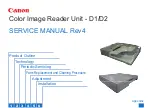
Installation 2 - 13
Acrylic
When fabricated by cell-casting, acrylic has very good optical quality and low initial cost. However, protect the
surface from the environment as acrylic is susceptible to attack by chemicals, mechanical stresses, and UV light.
Acrylic has reasonably good impact resistance and can be ultrasonically welded.
CR-39
CR-39 is a thermal-setting plastic produced by the cell-casting process, and is commonly used in plastic eye
glasses lenses. CR-39 has excellent chemical and environmental resistance, including good surface hardness.
Typically it does not require hard-coating, but can be hard coated for severe environments. CR-39 has reasonably
good impact resistance and cannot be ultrasonically welded.
Chemically Tempered Float Glass
Glass is a hard material which provides excellent scratch and abrasion resistance. However, unannealed glass is
brittle. Increasing flexibility strength with minimal optical distortion requires chemical tempering. Glass cannot be
ultrasonically welded and is difficult to cut into odd shapes.
CAUTION
Consult an opto-mechanical engineer to recommend an appropriate window material and to
determine if coatings are appropriate for the specific application.
NOTE
Do not use polycarbonate material.
Table 2-3
Suggested Window Properties
Property
Description
Material
Red cell-cast acrylic.
Spectral Transmission
85% minimum from 640 to 690 nanometers.
Thickness
0.059 ± 0.005
Wavefront Distortion (transmission)
0.2 wavelengths peak-to-valley maximum over any 0.08 in. diameter within
the clear aperture.
Clear Aperture
To extend to within 0.04 in. of the edges all around.
Surface Quality
60-20 scratch/dig
Coating
Both sides to be anti-reflection coated to provide 0.5% max reflectivity
(each side) from 640 to 690 nanometers at nominal window tilt angle.
Coatings must comply with the hardness adherence requirements of
MIL-M-13508.
Summary of Contents for MiniScan MS1204FZY
Page 1: ...Symbol MiniScan MSXX04 Series Integration Guide...
Page 2: ......
Page 3: ...Symbol MiniScan MSXX04 Series Integration Guide 72E 67134 05 Revision A January 2008...
Page 6: ...iv Symbol MiniScan MSXX04 Series Integration Guide...
Page 14: ...xii Symbol MiniScan MSXX04 Series Integration Guide...
Page 18: ...xvi Symbol MiniScan MSXX04 Series Integration Guide...
Page 24: ...1 6 Symbol MiniScan MSXX04 Series Integration Guide...
Page 42: ...2 18 Symbol MiniScan MSXX04 Series Integration Guide...
Page 50: ...3 8 Symbol MiniScan MSXX04 Series Integration Guide...
Page 70: ...5 12 Symbol MiniScan MSXX04 Series Integration Guide...
Page 82: ...6 12 Symbol MiniScan MSXX04 Series Integration Guide...
Page 94: ...7 12 Symbol MiniScan MSXX04 Series Integration Guide...
Page 106: ...9 4 Symbol MiniScan MSXX04 Series Integration Guide...
Page 218: ...10 112Symbol MiniScan MSXX04 Series Integration Guide Numeric Bar Codes continued 5 6 7 8 9...
Page 220: ...10 114Symbol MiniScan MSXX04 Series Integration Guide...
Page 240: ...A 16 Symbol MiniScan MSXX04 Series Integration Guide...
Page 252: ...Glossary 12 Symbol MiniScan MSXX04 Series Integration Guide...
Page 258: ......
Page 259: ......
















































